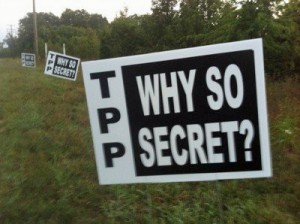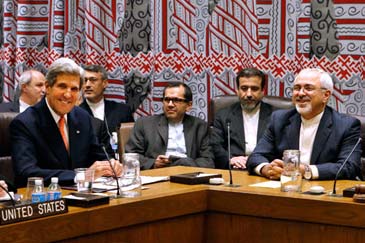Like the Trans-Pacific Partnership Agreement, the nuclear deal between Iran and five other countries including the United States is complicated, and the devil is in the details. When we’re talking about centrifuges, yellow cake, and a host of other components, it is very difficult for the layman to assess the trustworthiness of the agreement.
In situations where the facts, particularly about variables, are overwhelming, it is important to have one or several individuals who are knowledgeable about the issue to offer their opinions to lay persons.
For much of his administration, President Barack Obama was one of those “go-to” figures for me. I largely trusted his goals and intentions. In the first large legislative hurdle that he faced, the Affordable Care Act, I was supportive, even though I thought that he could have pushed the edge of the envelope more with Medicare-for-all, or at least the public option. The key item was that it was clear that he wanted to expand affordable health care, with limited contingencies, to as many Americans as possible.
During years two through six of his Administration, he did enough to give me reason to have confidence in his judgment and decision-making. I was somewhat baffled, perhaps even concerned, with his hard lines on Iraq and Afghanistan, but was willing to give him a benefit because he was more familiar with the details than I would ever be.
2015 has been a transformational year. The President has stepped up his advocacy for meaningful gun control (this actually began following the Newtown shooting in late 2012). His response to the shooting of nine unarmed African-American citizens in a South Carolina church has been thoughtful and forceful, while appealing to our best emotions. Issues of race and violence are ones in which the layman can offer thoughts without need for experts or “go-to” figures.
But 2015 has also been the year of the Trans-Pacific Partnership Agreement. Weighing how new international economic relationships will impact on American workers and consumers is difficult to do. Such an issue would normally lend itself to relying on the opinions of a trustworthy person in office.
However, President Obama lost me on the issue for several reasons. None of these reasons have anything to do with an expert analysis of what’s in the treaty. They have to do with the “packaging” of the agreement and all the missed-steps in providing citizens with a recommendation with which they could be confident.
First, the treaty was not designed to be taken up by Congress like most other pieces of legislation. It was offered as a “fast-track” item, in which Congress would agree to its consideration if no amendments were allowed, and there would simply be an up or down vote in each chamber. Initially, a sufficient number of Democrats objected to this process, but somehow the Administration twisted enough arms to gain acceptance of fast track consideration. That process did not sit right with me.
Second, none of us as citizens have been able to see the text of the treaty. Terms of the treaty say that only a very narrow group of “involved participants” could actually see the text. This included members of Congress. However, they would have to read it in an isolated room, take no notes, make no copies, and leave their digital devices outside the room. The other large group of readers were the “captains of industry” and Wall Street Bankers. Left out were representatives of labor unions, consumer groups, health and safety organizations, academics, and just plain interested citizens exercising their civic duty to be informed on the issues.
Third, other people in whom I have confidence have repeatedly explained how the TPP will undermine the economic well-being of American workers, particularly those in labor unions. Furthermore, worker safety can be compromised, and citizens may receive new products for which it would be extremely difficult to hold manufacturers accountable in court for defects. Among those speaking out against the TPP have been Senators Elizabeth Warren and Bernie Sanders, as well as former Labor Secretary Robert Reich.
President Obama never offered a comprehensive explanation of the treaty to the American people. It was not a frequent topic of questions in press conferences. He even refused to take questions from members of his own party when he met with their caucus on Capitol Hill.
The fact that this agreement was shrouded in secrecy and was being advocated by wealthy entrenched interests in the United States and in other countries gave me sufficient cause to somewhat reluctantly refuse to accept the President’s position on this.
And now we have the nuclear agreement with Iran. In many respects, the President has already presented it in a much more palatable way than he did with TPP. In his July 15 press conference, he not only eagerly accepted questions on the agreement; he actually solicited more queries on concerns about the treaty when questions seemed to dry up. The full text of the agreement is on-line. Congress will have up to 60 days to have robust debate and dialogue on the issues. Nuclear experts from both government and private sectors are available to share their thoughts on the understanding. Perhaps most importantly, the rationale for the agreement is clear: to diminish the likelihood of Iran developing nuclear weapons in the near future and thereby promote more world peace. As the President said, there are no guarantees, even with stringent inspection protocols, but it is about as good a deal as could be negotiated under the circumstances.
However, my inclination to support the President on a complicated issue like this is somewhat diminished because of what I considered his extremely shoddy and disingenuous defense of the TPP. I’m going to try to learn as much about the Iran agreement from different sources as I can.
I doubt that I am the only person whose confidence in the President has been somewhat diminished because of TPP. Like anyone, he can earn it back. But to quote him from his news conference, he has “some ‘splainin’” to do.
Post first published in Occasional Planet.
